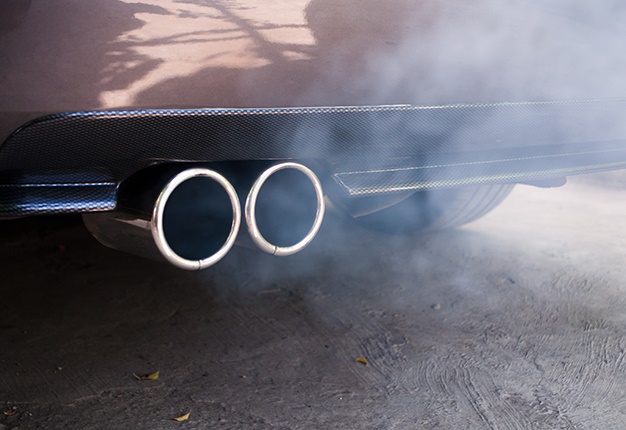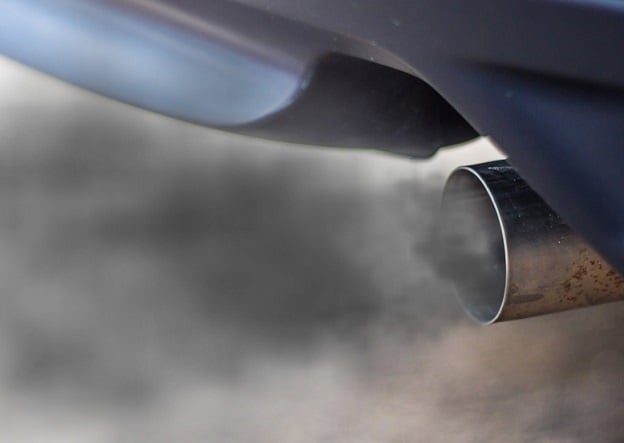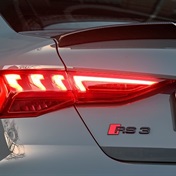
<i>Image: iStock</i>
It's a good day for the motoring industry and motorists as car dealerships are now open to sell vehicles and personal vehicles may be serviced, albeit under strict protocols. However, this doesn't mean business as usual, nor does it mean lockdown has lifted and we should be less cautious.
While the vehicle industry reopening means some people will slowly allowed back at work, most of us are still in lockdown for quite some time, and our vehicles will still be parked when not on the essential run for groceries or medication.
Earlier in May, Wheels24 published five questions about your parked vehicle in lockdown. We said your vehicle should be started and idled at least once a week if you're not driving your car often.
Wheels24 reader Paul Sumner has written in and explained that this is not the best advice as your car should be run until it reaches optimum temperature.
Here's what Sumner does to ensure his vehicles remain in good running order:
Sumner says: "The recent article by Car Doctor on five frequently-asked questions during lockdown refers to Q3 - Could I just leave my car parked...? The advice given by the author is to start and idle a vehicle, when not used, once a week. While the point of vermin is well taken, I would differ from the start/idle advice for three reasons:
"First, a start-idle is unlikely to recovery battery charge lost while stationary for a week and then used in the cold start. The battery will be drained sooner than if not started.
"Second, it is well-known that the worst wear on a modern engine occurs in the first few minutes from a cold start. Running cool, such as idling from cold start, lengthens the time that components are designed at running-clearances, e.g. for cylinder-piston clearances - compounded by the cold, fuel-rich idle that reduces effective oil lubrication of the cylinder walls, increasing wear. There is also the negative effect of condensation in an engine before running at optimum temperature and oil deterioration by water condensation. An engine (car) should thus be driven, not idled after startup has stabilised.
Image: iStock
"Third, following startup from cold, the water vapour (a by-product of combustion) makes contact with a cold exhaust system, and condensation occurs. This is seen as the exhaust drip after cold startup that is blown out of the exhaust when revved above idle. Condensation diminishes as the exhaust heats up when driven, and any condensed water is then progressively evaporated. An idle is unable to heat the exhaust system (or get the catalyst to functioning temperature!) - condensed water will remain in the exhaust.
My vehicles stand for about a week now between use. When running either car (both are naturally aspirated petrol models), I am doing my best to ensure that the vehicle is parked back in my garage after driving at least some kilometres at normal running temperature.
A monthly battery charger top-up is still needed though. While my novice understanding would humbly defer to proven advice to the contrary, for now, I would NEVER just start/idle a car and then stand it, even for a day!
While the vehicle industry reopening means some people will slowly allowed back at work, most of us are still in lockdown for quite some time, and our vehicles will still be parked when not on the essential run for groceries or medication.
Earlier in May, Wheels24 published five questions about your parked vehicle in lockdown. We said your vehicle should be started and idled at least once a week if you're not driving your car often.
Wheels24 reader Paul Sumner has written in and explained that this is not the best advice as your car should be run until it reaches optimum temperature.
Here's what Sumner does to ensure his vehicles remain in good running order:
Sumner says: "The recent article by Car Doctor on five frequently-asked questions during lockdown refers to Q3 - Could I just leave my car parked...? The advice given by the author is to start and idle a vehicle, when not used, once a week. While the point of vermin is well taken, I would differ from the start/idle advice for three reasons:
"First, a start-idle is unlikely to recovery battery charge lost while stationary for a week and then used in the cold start. The battery will be drained sooner than if not started.
"Second, it is well-known that the worst wear on a modern engine occurs in the first few minutes from a cold start. Running cool, such as idling from cold start, lengthens the time that components are designed at running-clearances, e.g. for cylinder-piston clearances - compounded by the cold, fuel-rich idle that reduces effective oil lubrication of the cylinder walls, increasing wear. There is also the negative effect of condensation in an engine before running at optimum temperature and oil deterioration by water condensation. An engine (car) should thus be driven, not idled after startup has stabilised.
Image: iStock
"Third, following startup from cold, the water vapour (a by-product of combustion) makes contact with a cold exhaust system, and condensation occurs. This is seen as the exhaust drip after cold startup that is blown out of the exhaust when revved above idle. Condensation diminishes as the exhaust heats up when driven, and any condensed water is then progressively evaporated. An idle is unable to heat the exhaust system (or get the catalyst to functioning temperature!) - condensed water will remain in the exhaust.
My vehicles stand for about a week now between use. When running either car (both are naturally aspirated petrol models), I am doing my best to ensure that the vehicle is parked back in my garage after driving at least some kilometres at normal running temperature.
A monthly battery charger top-up is still needed though. While my novice understanding would humbly defer to proven advice to the contrary, for now, I would NEVER just start/idle a car and then stand it, even for a day!
KEEP UPDATED on the latest Wheels news by subscribing to our FREE newsletter.
Disclaimer: Wheels24 encourages freedom of speech and the expression of diverse views. The views of columnists, and or readers published on Wheels24 are therefore their own and do not necessarily represent the views of Wheels24.



 Publications
Publications
 Partners
Partners












